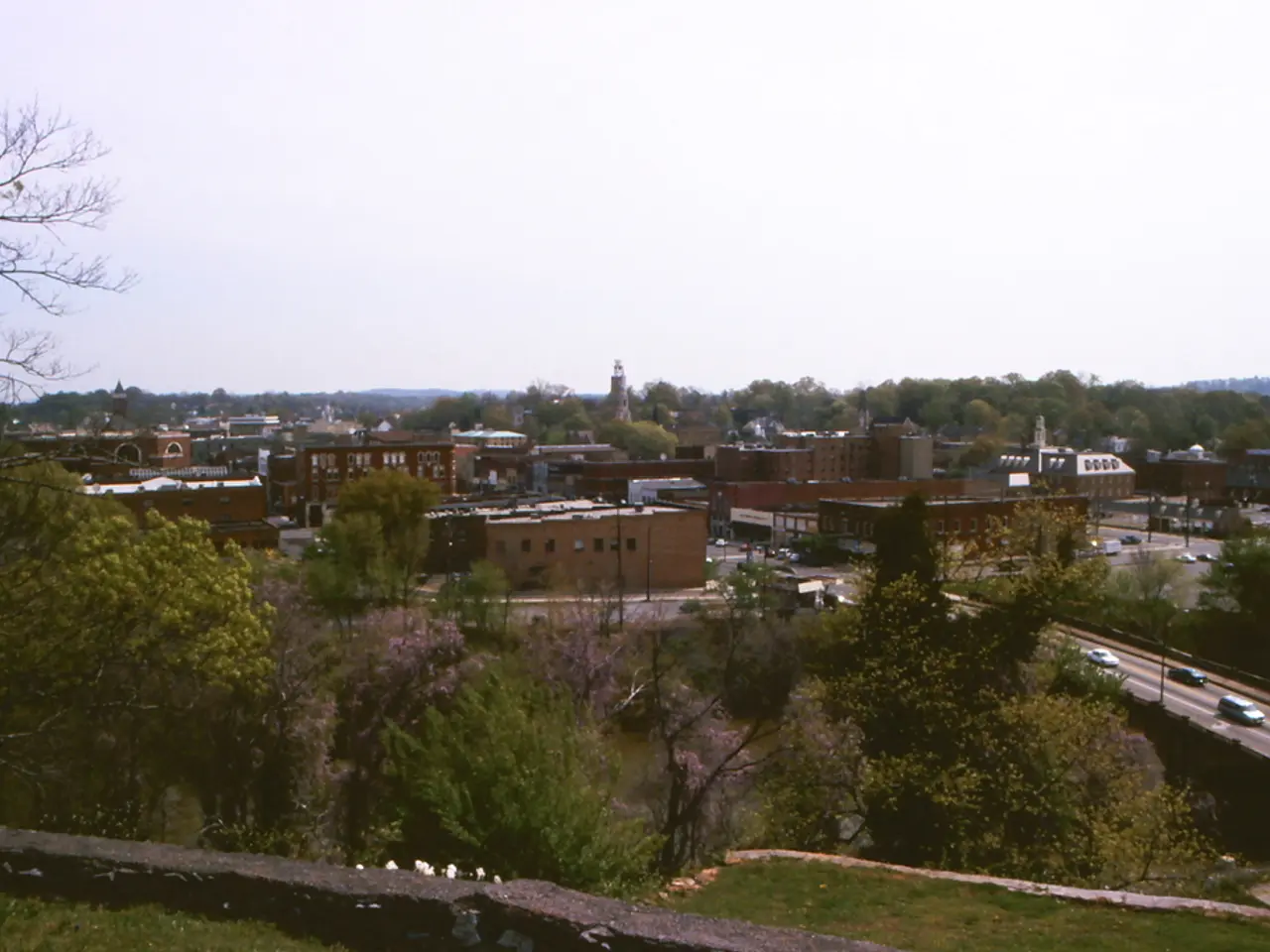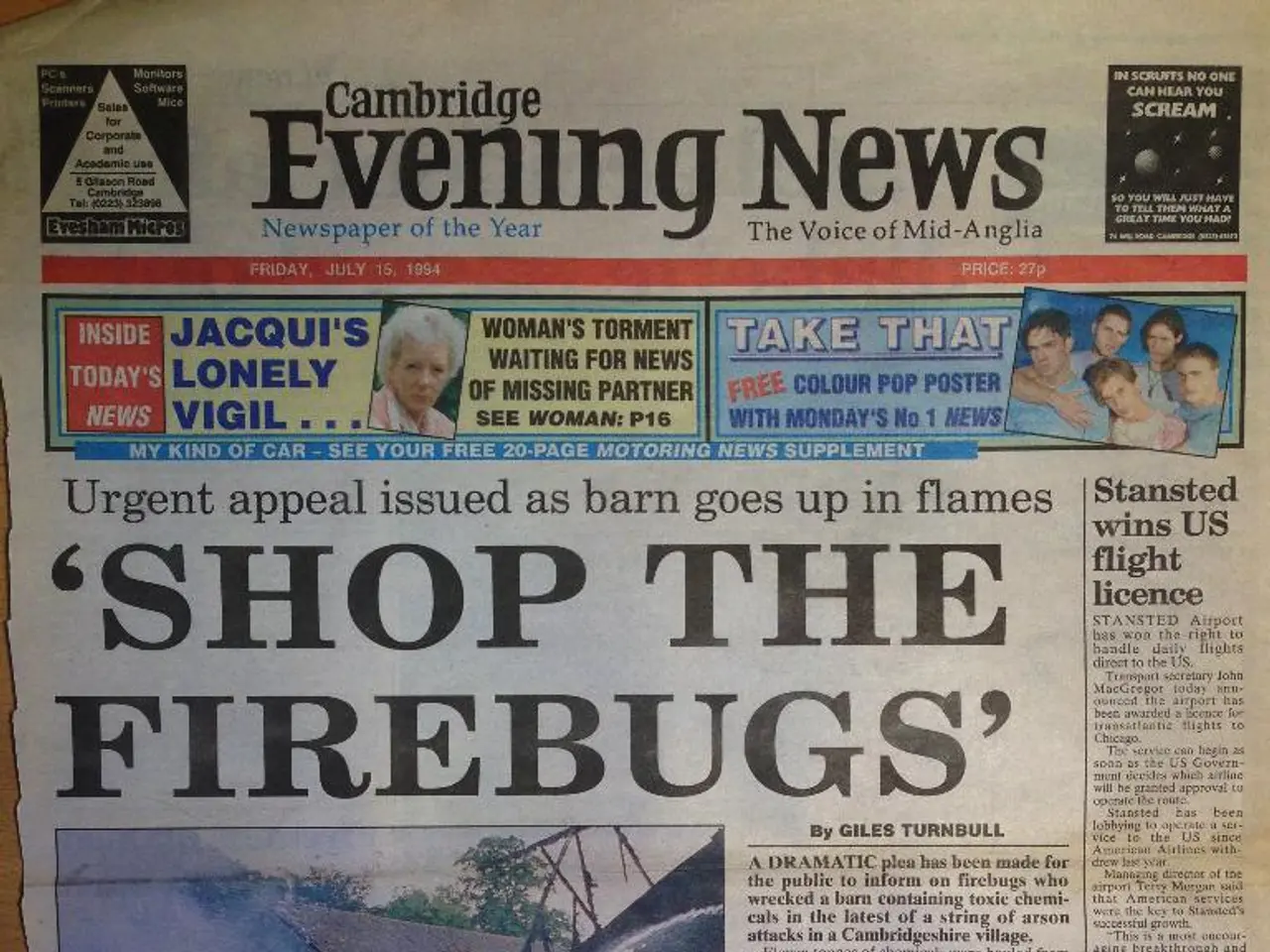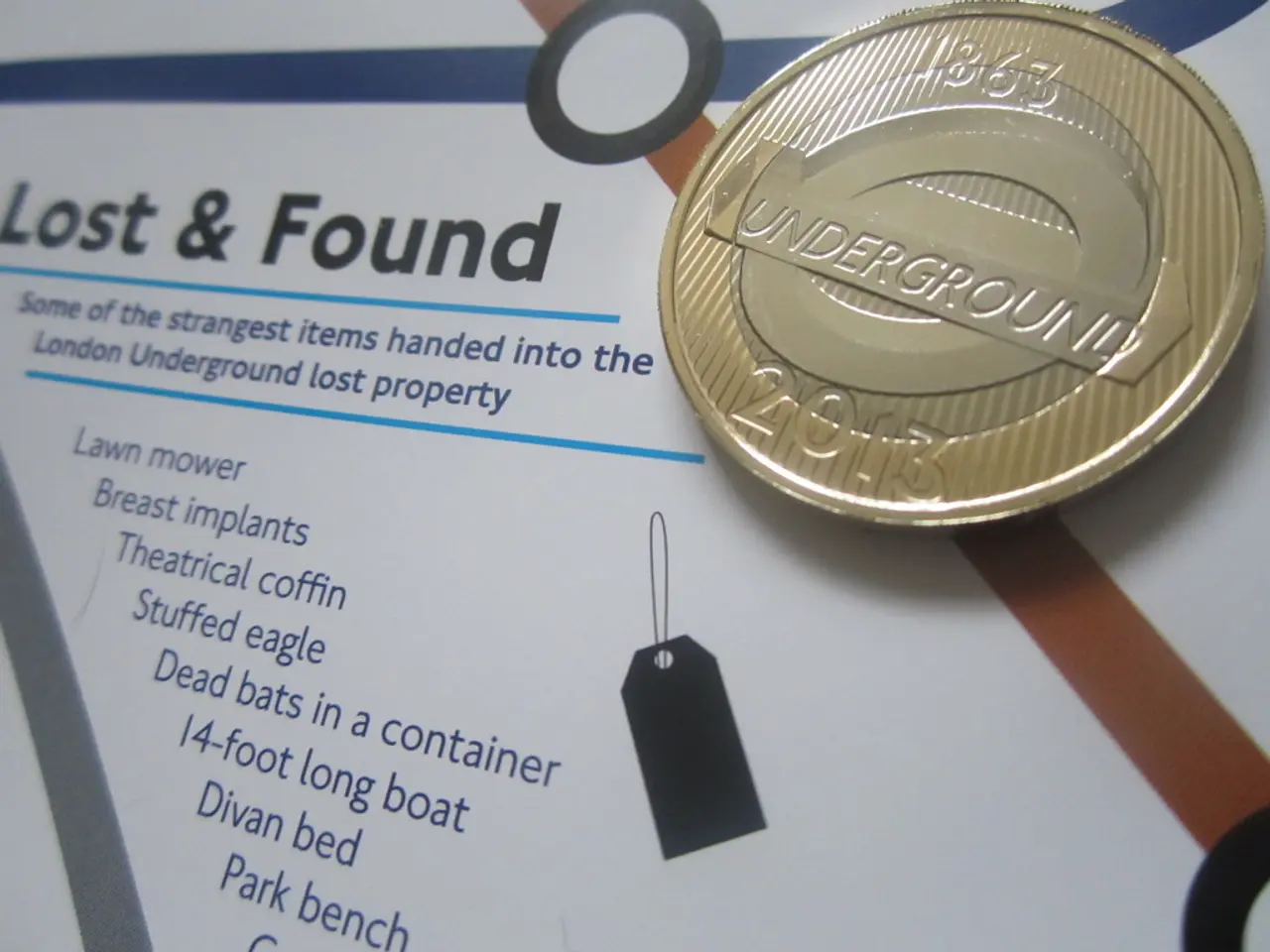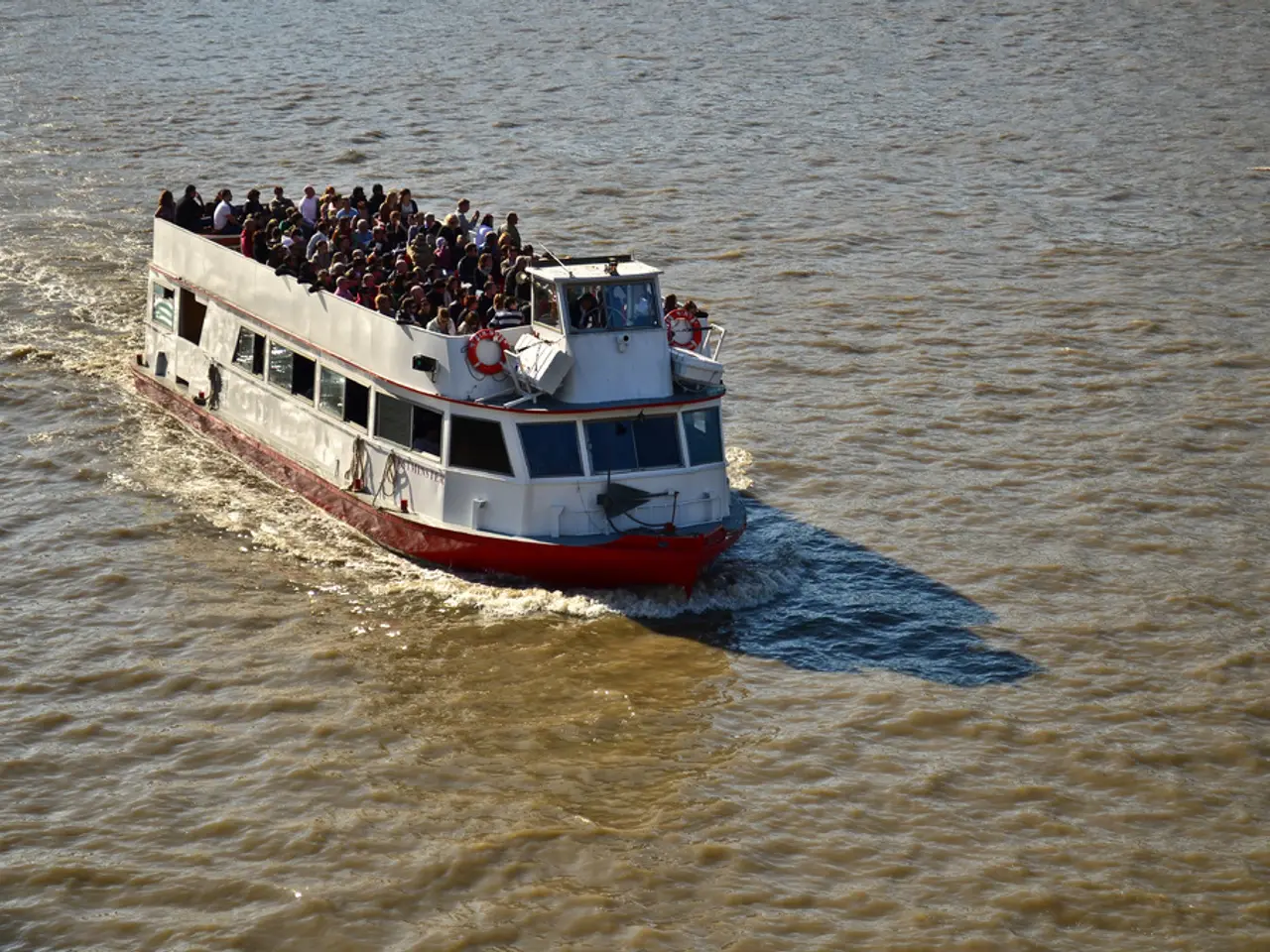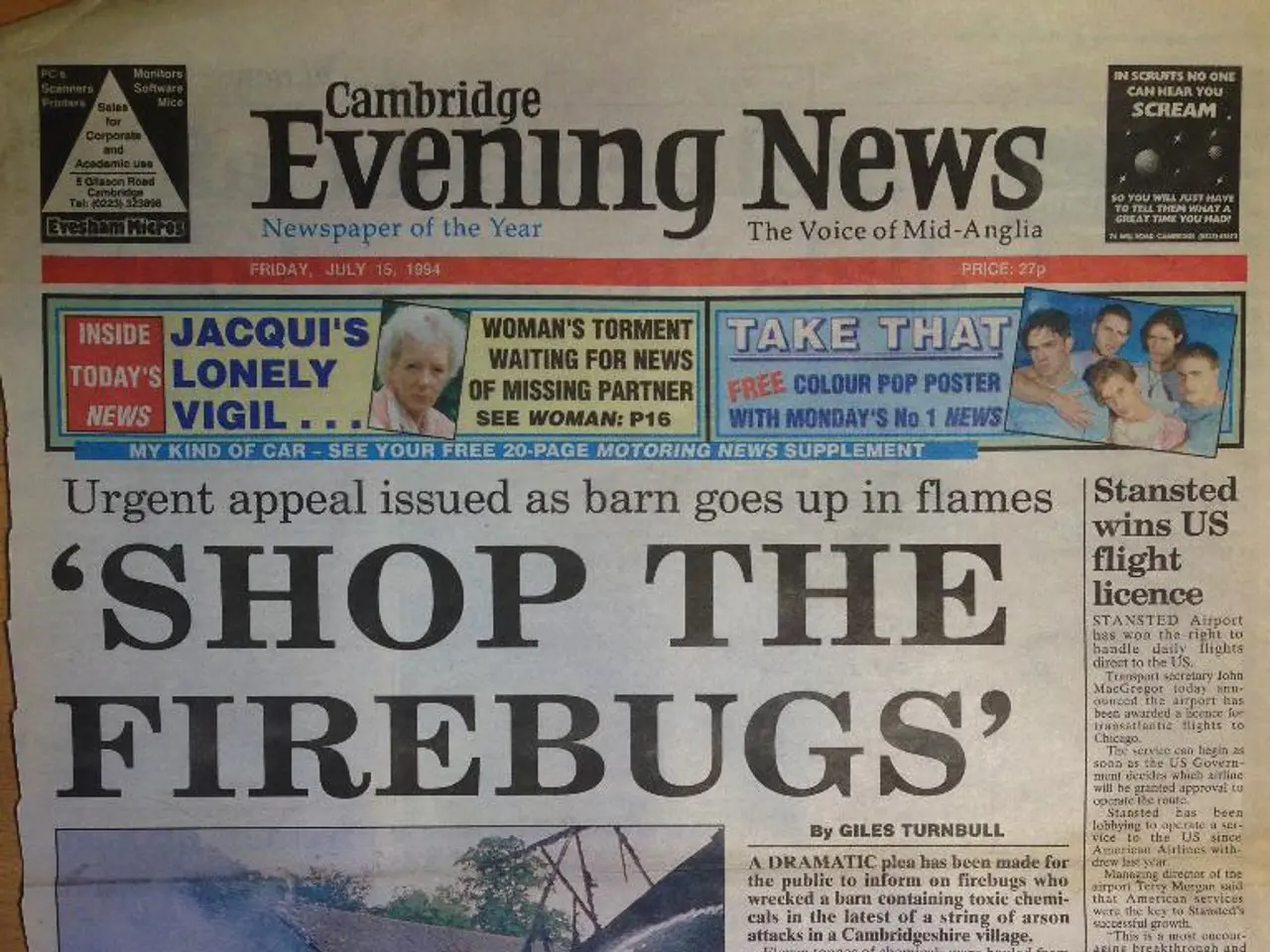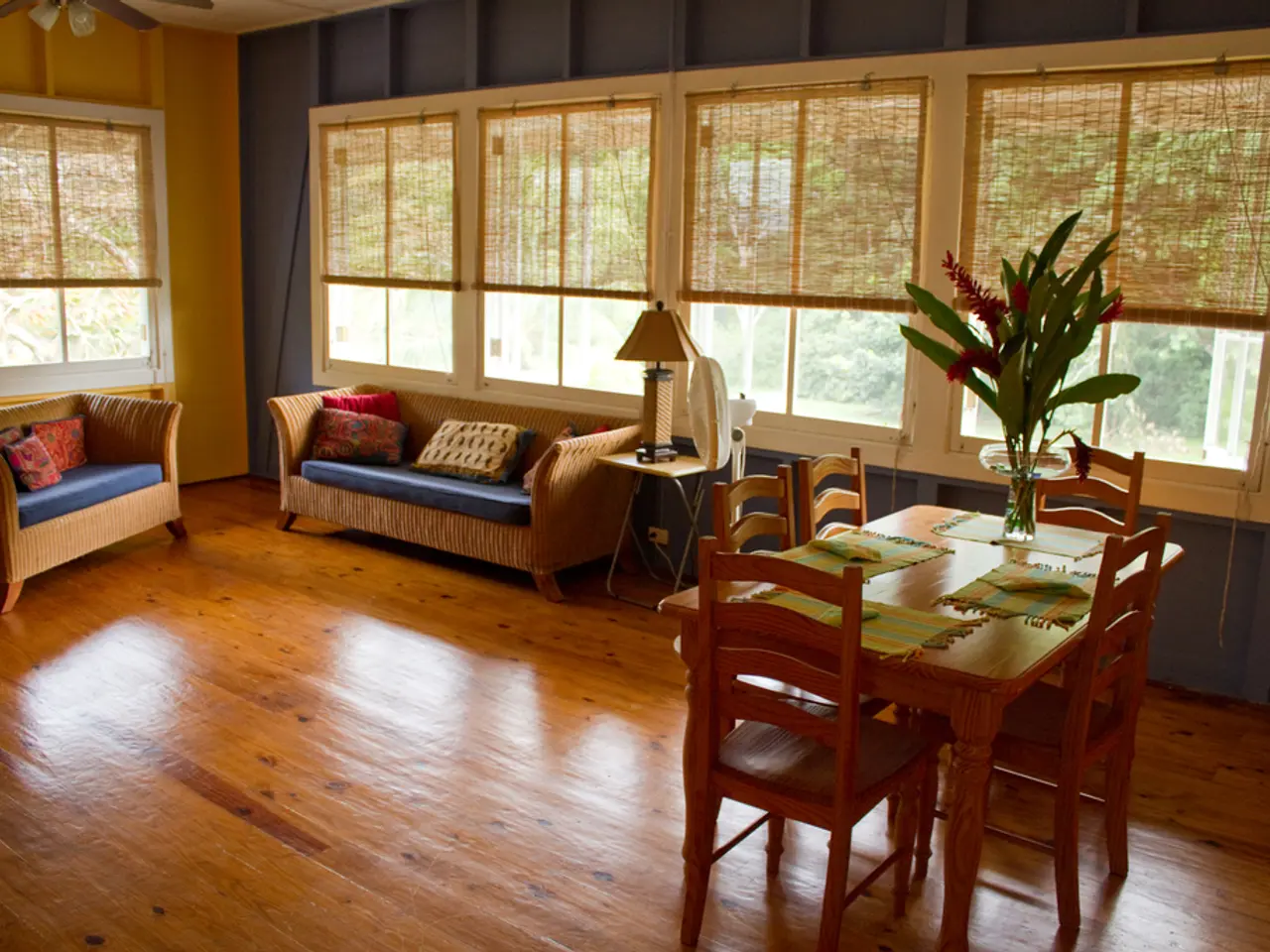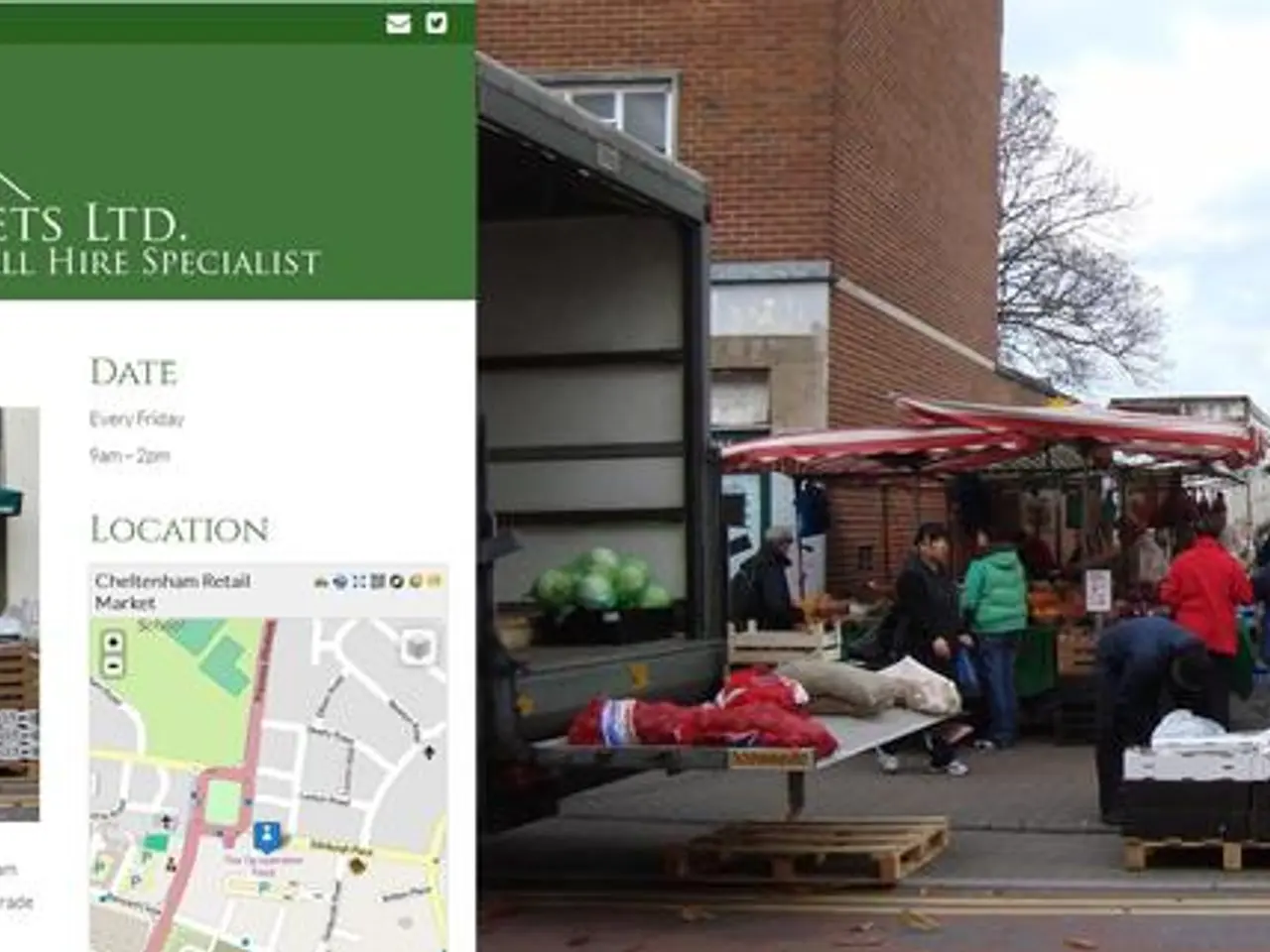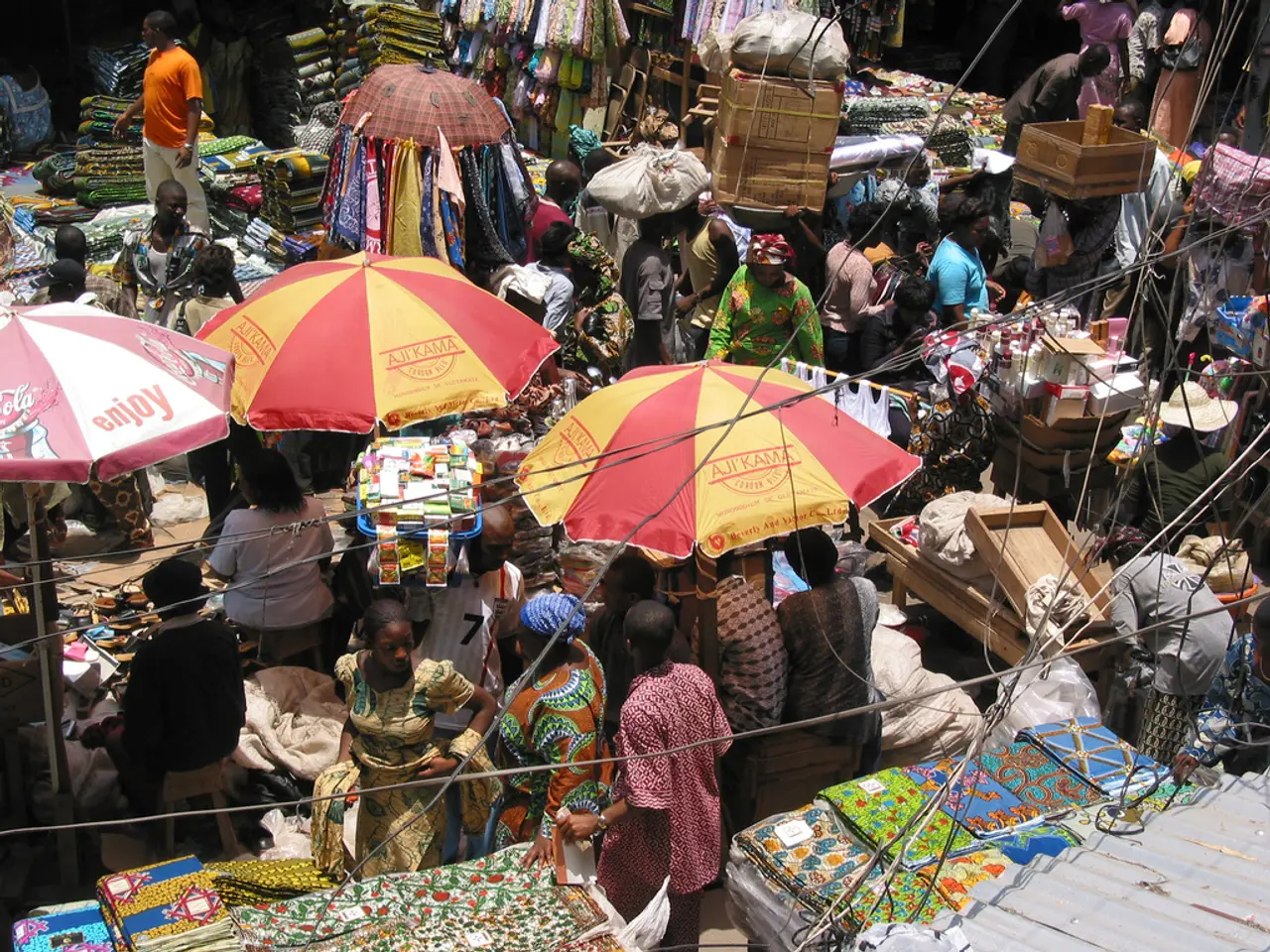Bracing Marl for the Impacts of Climate Change Adversity
In a bid to combat the effects of climate change and promote sustainable urban development, the city of Marl has launched the KRiS (Climate-Resilient Region with International Reach) funding program. This state-backed initiative offers financial support to both public and private property owners, encouraging them to invest in climate-adapted construction projects.
Approximately 50 citizens attended a recent public information event about the KRiS program, indicating a significant surge in interest in these areas. The event, organised by the city administration and Zukunftsinitiative Klima.Werk from the Lippeverband, focused on concrete funding options for climate-adapted construction and sustainable urban development in Marl.
The KRiS funding program provides up to 90% funding for private projects and 100% co-financing for public measures related to green roofs, facades, de-sealing of areas, infiltration solutions, and tree pits. Eligible projects must have been connected to the combined sewer system before 1996 and must not be prescribed by building plans or other legal requirements.
Measures supported by KRiS aim to allow rainwater to infiltrate, evaporate, or be stored, and prevent it from flowing into the sewage system along with wastewater. This is crucial in reducing the strain on the city's infrastructure during heavy or prolonged rain, as highlighted by Heike Werner from the Central Operations Office.
"The more storage capacity and runoff areas there are for precipitation, the lower the risk of heavy or prolonged rain," said Werner. Klaus Dalkowski from Klima.Werk added that the more green and evaporation surfaces there are, the better cooling and fresh air supply work.
Other projects for green roofs or funding like ELKA for decoupling rainwater from the combined sewer system can also be funded. In a move to prioritise pilot measures, the administration plans to define a design space in the city center where these projects will be given preference.
The city of Marl is no stranger to the consequences of climate change. With more frequent heavy rain and summers marked by increased heat records, the need for climate-resilient solutions has never been greater. The great response at the information event shows a notable increase in interest in these areas, boding well for the future of Marl's urban landscape.
For detailed information about the specific criteria and eligible/ineligible projects under the KRiS program in Marl, it is recommended to consult the official Marl municipal website or contact the responsible local environmental or climate office directly. The KRiS program is a significant step towards a greener, more resilient Marl, and the city encourages all property owners to explore the opportunities it offers.
- The KRiS funding program, a significant step towards a greener and more resilient Marl, offers up to 90% financial support for private climate-adapted construction projects, such as green roofs, de-sealing of areas, and tree pits.
- In the realm of environmental science, the KRiS program prioritizes projects that allow rainwater to infiltrate, evaporate, or be stored, preventing it from straining the city's infrastructure during heavy or prolonged rain.
- The city of Marl, in its efforts to promote sustainable urban development and combat climate change, also provides 100% co-financing for public measures related to these projects, making them more accessible for businesses and property owners.
